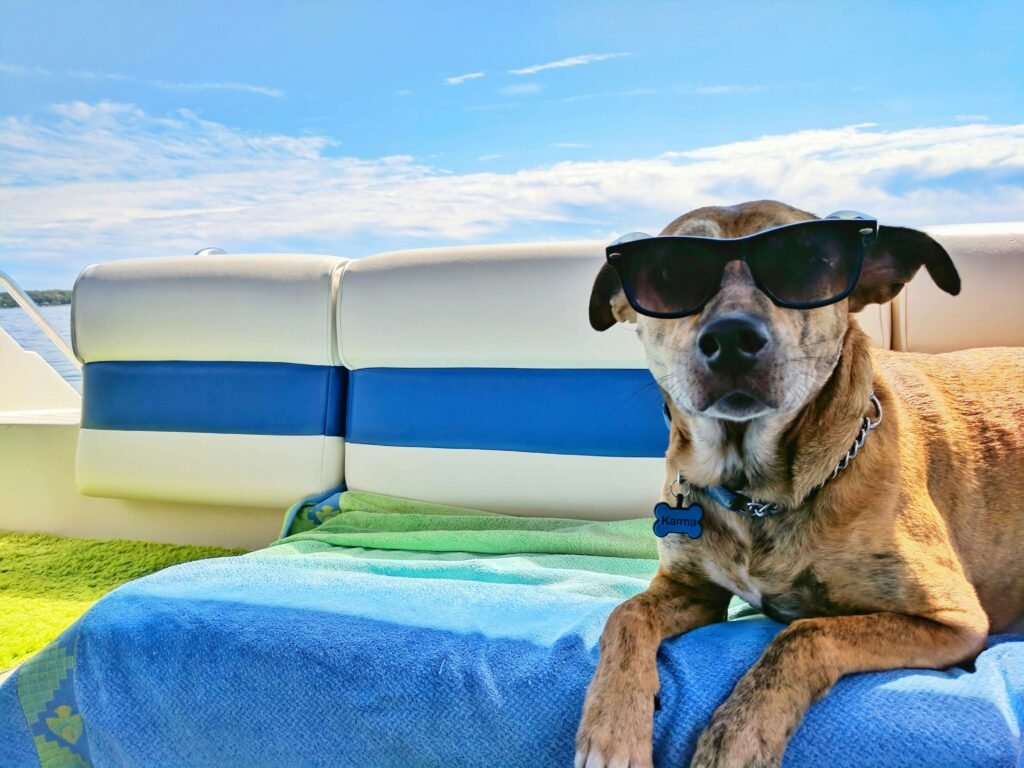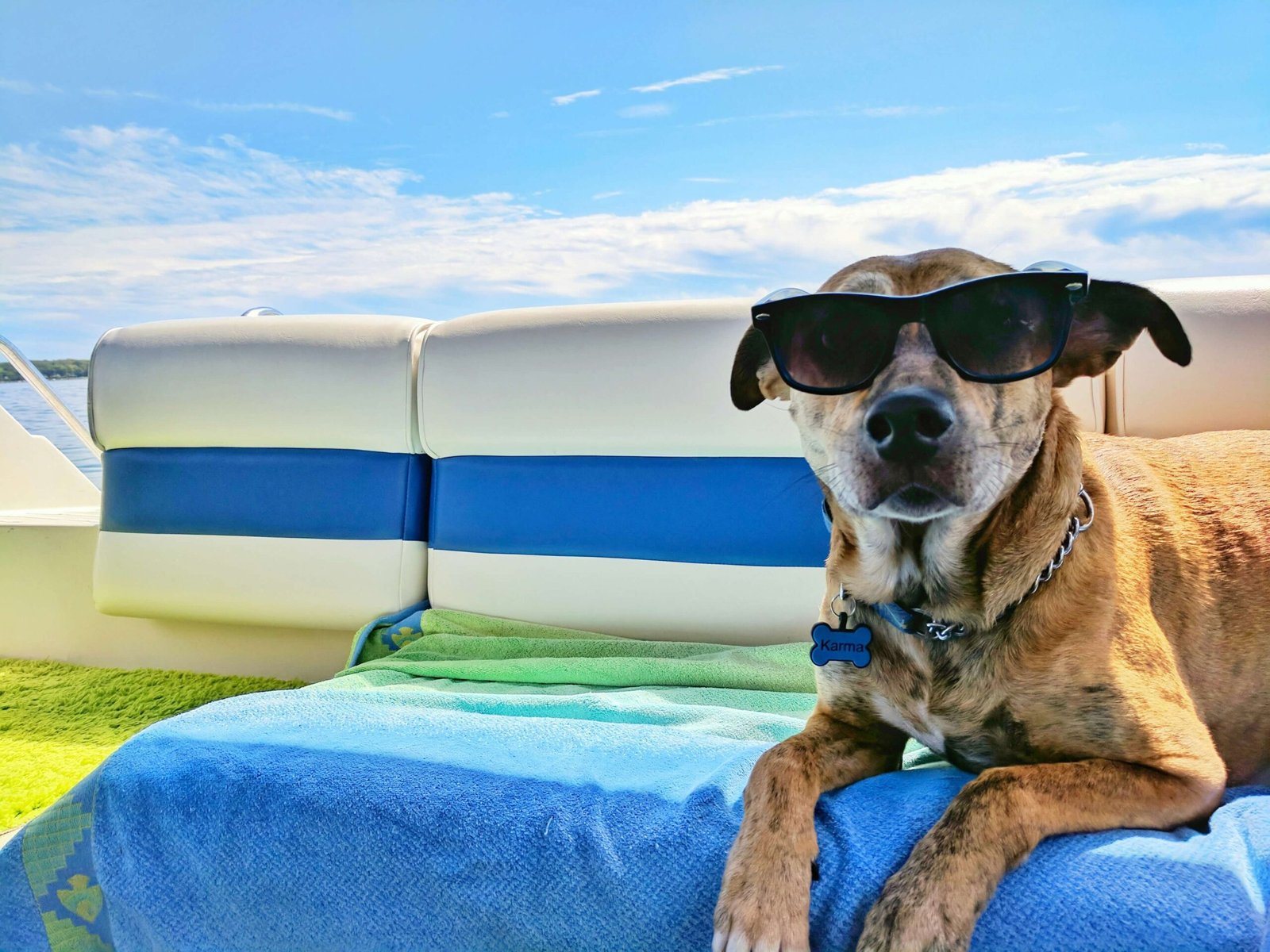Can You Leave a Dog Alone Overnight? A Guide for Responsible Pet Owners
As a dog owner, you’ve probably wondered at some point whether it’s okay to leave your furry friend alone overnight. Whether it’s due to work commitments, an unexpected emergency, or simply needing a night away, this question is more common than you might think. Dogs are social animals that thrive on companionship, but life sometimes requires us to make difficult decisions about their care. In this blog post, we’ll explore the factors to consider when leaving your dog alone overnight, provide practical tips to ensure their comfort and safety, and help you make informed choices as a responsible pet owner. Let’s dive in!
Factors to Consider Before Leaving Your Dog Alone Overnight
Before deciding whether it’s appropriate to leave your dog alone overnight, it’s essential to evaluate several key factors. Every dog is unique, and what works for one may not work for another. Here are some important considerations:
Age of the Dog
Young puppies and senior dogs often require more attention and care compared to adult dogs. Puppies may struggle with bladder control, while older dogs could face health issues.Temperament and Personality
Some dogs are naturally more independent and can handle solitude better than others. If your dog is prone to anxiety or separation distress, leaving them alone overnight might not be ideal.Health Status
Dogs with medical conditions or those recovering from surgery may need frequent monitoring. Leaving them alone could pose risks if they require immediate care.Training and Behavior
A well-trained dog accustomed to spending time alone may cope better than one who hasn’t been exposed to such situations. Crate training or obedience classes can make a difference.Environment and Safety
Ensure your home is secure and free of hazards. A safe space, like a designated room or crate, can provide comfort and prevent accidents.
By carefully assessing these factors, you can determine whether your dog will be able to handle being left alone overnight. Remember, preparation is key to ensuring their well-being during your absence.
Signs Your Dog May Not Be Ready for Overnight Solitude
Even if you believe your dog is generally independent, there are certain signs that indicate they might not be ready to spend an entire night alone. Recognizing these behaviors early can help you avoid potential problems. Here’s what to look out for:
Excessive Barking or Howling
If your dog frequently vocalizes when left alone, even for short periods, they may experience separation anxiety.Destructive Behavior
Chewing furniture, scratching doors, or destroying household items are common signs of stress in dogs left alone.Accidents Indoors
A house-trained dog having accidents inside could signal discomfort or anxiety related to being alone.Loss of Appetite
Refusing food or water when left alone may indicate emotional distress or fear.Pacing or Restlessness
Constant movement, inability to settle, or repetitive actions suggest unease and dissatisfaction with their situation.
If you notice any of these signs, it’s crucial to address them before considering leaving your dog alone overnight. Ignoring these red flags could lead to further behavioral issues or harm to your pet.
Check this guide 👉Why Does My Dog Bark When I Leave? Best 7 Expert Tips!
Check this guide 👉Can I Leave My Dog in the Car? Best 7 Expert Tips!
Check this guide 👉Is It Illegal to Leave Your Dog in the Car? Best 7 Tips!

Pros of Leaving a Dog Alone Overnight | Cons of Leaving a Dog Alone Overnight |
|---|---|
Provides independence training opportunities | Risk of separation anxiety and distress |
Allows owners flexibility in emergencies | Potential for destructive behavior |
Saves costs associated with boarding services | Health concerns without supervision |
Familiar environment reduces stress | Lack of potty breaks for young or old dogs |
Builds trust through gradual acclimation | Limited social interaction and stimulation |
Tips to Prepare Your Dog for Spending Time Alone
If you decide that leaving your dog alone overnight is unavoidable, proper preparation can significantly ease the transition. Follow these tips to create a positive experience for both you and your pet:
Establish a Routine
Dogs thrive on consistency. Gradually increase the amount of time they spend alone during the day to build tolerance for longer periods.Provide Mental Stimulation
Leave interactive toys, puzzle feeders, or treat-dispensing gadgets to keep your dog entertained and engaged.Create a Comfortable Space
Set up a cozy area with their bed, blankets, and familiar scents. Adding a piece of your clothing can provide additional reassurance.Ensure Access to Food and Water
Use automatic feeders and water dispensers to guarantee your dog has access to nourishment throughout the night.Consider a Companion
If possible, arrange for a trusted friend, family member, or pet sitter to check in on your dog periodically.
With adequate preparation, you can minimize stress and ensure your dog feels secure even when you’re not around.
Alternatives to Leaving Your Dog Alone Overnight
Sometimes, leaving your dog alone overnight isn’t the best option. Fortunately, there are alternatives that prioritize your dog’s well-being while accommodating your schedule. Explore these options:
Pet Sitters
Hiring a professional pet sitter ensures your dog receives personalized care in the comfort of their own home.Dog Boarding Facilities
Reputable kennels offer supervised environments where dogs can socialize and receive attention.Friends or Family Members
Ask someone close to you if they’re willing to host your dog temporarily. Familiar faces can ease anxiety.Doggy Daycare Services
Some facilities provide overnight stays alongside daytime play sessions for added fun.Neighboring Dogs for Companionship
If feasible, arrange playdates or sleepovers with nearby dogs to keep yours company.
These alternatives can give you peace of mind knowing your dog is cared for by loving individuals or professionals.
Additional Safety Measures for Leaving Your Dog Alone
When leaving your dog alone overnight, taking extra safety measures can make a significant difference in ensuring their well-being. These precautions help minimize risks and create a secure environment for your pet. Here are some steps you can take:
Install Baby Gates or Barriers
Use baby gates to restrict access to certain areas of the house, preventing your dog from entering potentially hazardous zones.Secure Hazardous Items
Store cleaning supplies, medications, and small objects out of reach to avoid accidental ingestion or injury.Check Electrical Cords
Ensure all cords are tucked away or covered to prevent chewing, which could lead to electrocution or damage.Use Window and Door Locks
Double-check that all windows and doors are securely closed to prevent escape attempts or unauthorized entry.Set Up a Camera System
Install a pet camera to monitor your dog remotely and ensure they’re safe and behaving normally.
By implementing these safety measures, you can rest assured that your home is a secure space for your dog, even when you’re not there.
Ways to Keep Your Dog Entertained Overnight
Keeping your dog entertained while you’re away can reduce boredom and anxiety, making their alone time more enjoyable. Providing mental and physical stimulation is key to keeping them happy. Consider these ideas:
Interactive Toys
Puzzle toys that dispense treats can challenge your dog’s mind and reward them for solving problems.Chew Toys
Durable chew toys provide hours of entertainment and help satisfy your dog’s natural urge to gnaw.Stuffed Animals
Soft plush toys can serve as comforting companions, especially if they resemble the feeling of having another dog nearby.Snuffle Mats
These textured mats encourage foraging behavior, allowing your dog to “hunt” for hidden treats.Rotating Toy Selection
Swap out toys regularly to keep things fresh and exciting, preventing boredom from using the same items repeatedly.
Incorporating these forms of entertainment ensures your dog stays engaged and content during their time alone.
Steps to Build Your Dog’s Confidence for Solitude
Building your dog’s confidence in being alone is a gradual process that requires patience and consistency. Strengthening their ability to handle solitude can improve their overall well-being. Try these strategies:
Start with Short Absences
Begin by leaving your dog alone for just a few minutes and gradually increase the duration over time.Practice Calm Departures
Avoid making a big fuss when leaving or returning home, as this can heighten your dog’s anxiety.Reward Independent Behavior
Praise your dog when they play independently or relax without seeking constant attention.Create Positive Associations
Offer special treats or toys only when you leave, so your dog associates your absence with something positive.Introduce Relaxation Techniques
Teach commands like “settle” or “place” to encourage calm behavior in specific areas of the house.
By consistently working on these techniques, you’ll empower your dog to feel more comfortable and self-assured during periods of solitude.
Frequently Asked Questions About Leaving Dogs Alone Overnight
Is it cruel to leave my dog alone overnight?
It depends on your dog’s personality, age, and needs. While some dogs adapt well, others may suffer from anxiety or loneliness.
How long can I safely leave my dog alone?
Most adult dogs can handle 8–10 hours alone, but puppies and seniors typically need more frequent breaks.
What should I do if my dog has separation anxiety?
Consult a veterinarian or animal behaviorist for guidance on managing anxiety symptoms effectively.
Can I leave my dog alone if they’re crate-trained?
Yes, but only if they’re comfortable in their crate and it’s large enough to accommodate their needs.
Should I leave music or TV on for my dog?
Soft background noise can soothe anxious dogs, but loud or sudden sounds might have the opposite effect.
Final Thoughts: Prioritizing Your Dog’s Well-Being
Leaving a dog alone overnight is a decision that shouldn’t be taken lightly. By considering factors like age, temperament, and health, preparing adequately, and exploring alternative solutions, you can ensure your pet remains happy and healthy even when you’re not there. Remember, every dog deserves love, attention, and care—so always prioritize their well-being above convenience. As responsible pet owners, our goal is to foster a strong bond built on trust and understanding. With the right approach, you can navigate overnight absences confidently while keeping your furry companion safe and content.
Do Cats Have Taste Buds? Best 7 Expert Tips! – Discover how cats experience flavors and why their taste is so unique.
Do Dogs Have Taste Buds? Best 7 Expert Tips! – Discover how dogs experience taste, their preferences, and what it means for their diet and health.
Can Cats Taste Sweet? Best 7 Expert Tips! – Discover why cats can’t taste sweetness, how it affects their diet, and tips to keep them healthy and happy.
Can Dogs Taste Sweet? Best 7 Expert Tips! – Discover how dogs perceive sweetness, which foods are safe, and tips to manage their sweet cravings responsibly.





